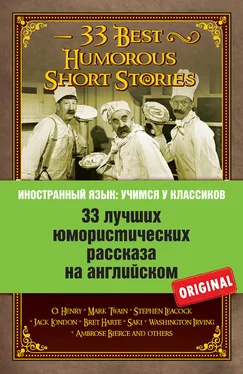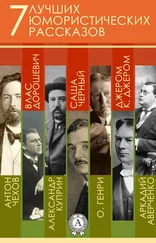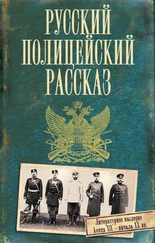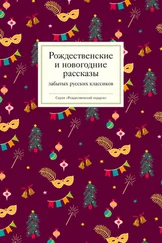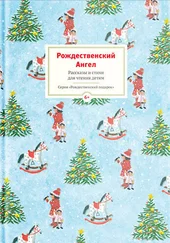Two or three evenings each week I would steal down to Heffelbower’s and revel in his back room. That was my only joy. I began to rise early and hurry through my work, that I might spend more time in my haven. In no other place could I throw off my habit of extracting humorous ideas from my surroundings. Peter’s talk left me no opening had I besieged it ever so hard.
Under this influence I began to improve in spirits. It was the recreation from one’s labor which every man needs. I surprised one or two of my former friends by throwing them a smile and a cheery word as I passed them on the streets. Several times I dumfounded my family by relaxing long enough to make a jocose remark in their presence.
I had so long been ridden by the incubus of humor that I seized my hours of holiday with a schoolboy’s zest.
My work began to suffer. It was not the pain and burden to me that it had been. I often whistled at my desk, and wrote with far more fluency than before. I accomplished my tasks impatiently, as anxious to be off to my helpful retreat as a drunkard is to get to his tavern.
My wife had some anxious hours in conjecturing where I spent my afternoons. I thought it best not to tell her; women do not understand these things. Poor girl! – she had one shock out of it.
One day I brought home a silver coffin handle for a paper weight and a fine, fluffy hearse plume to dust my papers with.
I loved to see them on my desk, and think of the beloved back room down at Heffelbower’s. But Louisa found them, and she shrieked with horror. I had to console her with some lame excuse for having them, but I saw in her eyes that the prejudice was not removed. I had to remove the articles, though, at double-quick time.
One day Peter Heffelbower laid before me a temptation that swept me off my feet. In his sensible, uninspired way he showed me his books, and explained that his profits and his business were increasing rapidly. He had thought of taking in a partner with some cash. He would rather have me than any one he knew. When I left his place that afternoon Peter had my check for the thousand dollars I had in the bank, and I was a partner in his undertaking business.
I went home with feelings of delirious joy, mingled with a certain amount of doubt. I was dreading to tell my wife about it. But I walked on air. To give up the writing of humorous stuff, once more to enjoy the apples of life, instead of squeezing them to a pulp for a few drops of hard cider to make the pubic feel funny – what a boon that would be!
At the supper table Louisa handed me some letters that had come during my absence. Several of them contained rejected manuscript. Ever since I first began going to Heffelbower’s my stuff had been coming back with alarming frequency. Lately I had been dashing off my jokes and articles with the greatest fluency. Previously I had labored like a bricklayer, slowly and with agony.
Presently I opened a letter from the editor of the weekly with which I had a regular contract. The checks for that weekly article were still our main dependence. The letter ran thus:
DEAR SIR:
As you are aware, our contract for the year expires with the present month. While regretting the necessity for so doing, we must say that we do not care to renew same for the coming year. We were quite pleased with your style of humor, which seems to have delighted quite a large proportion of our readers. But for the past two months we have noticed a decided falling off in its quality. Your earlier work showed a spontaneous, easy, natural flow of fun and wit. Of late it is labored, studied, and unconvincing, giving painful evidence of hard toil and drudging mechanism. Again regretting that we do not consider your contributions available any longer, we are, yours sincerely,
THE EDITOR.
I handed this letter to my wife. After she had read it her face grew extremely long, and there were tears in her eyes.
‘The mean old thing!’ she exclaimed indignantly. ‘I’m sure your pieces are just as good as they ever were. And it doesn’t take you half as long to write them as it did.’ And then, I suppose, Louisa thought of the checks that would cease coming. ‘Oh, John,’ she wailed, ‘what will you do now?’
For an answer I got up and began to do a polka step around the supper table. I am sure Louisa thought the trouble had driven me mad; and I think the children hoped it had, for they tore after me, yelling with glee and emulating my steps. I was now something like their old playmate as of yore.
‘The theatre for us to-night!’ I shouted; ‘nothing less. And a late, wild, disreputable supper for all of us at the Palace Restaurant. Lumpty-diddle-de-dee-de-dum!’
And then I explained my glee by declaring that I was now a partner in a prosperous undertaking establishment, and that written jokes might go hide their heads in sackcloth and ashes for all me.
With the editor’s letter in her hand to justify the deed I had done, my wife could advance no objections save a few mild ones based on the feminine inability to appreciate a good thing such as the little back room of Peter Hef – no, of Heffelbower & Co’s. undertaking establishment.
In conclusion, I will say that to-day you will find no man in our town as well liked, as jovial, and full of merry sayings as I. My jokes are again noised about and quoted; once more I take pleasure in my wife’s confidential chatter without a mercenary thought, while Guy and Viola play at my feet distributing gems of childish humor without fear of the ghastly tormentor who used to dog their steps, notebook in hand.
Our business has prospered finely. I keep the books and look after the shop, while Peter attends to outside matters. He says that my levity and high spirits would simply turn any funeral into a regular Irish wake.
It was a hot afternoon, and the railway carriage was correspondingly sultry, and the next stop was at Templecombe, nearly an hour ahead. The occupants of the carriage were a small girl, and a smaller girl, and a small boy. An aunt belonging to the children occupied one corner seat, and the further corner seat on the opposite side was occupied by a bachelor who was a stranger to their party, but the small girls and the small boy emphatically occupied the compartment. Both the aunt and the children were conversational in a limited, persistent way, reminding one of the attentions of a housefly that refuses to be discouraged. Most of the aunt’s remarks seemed to begin with ‘Don’t,’ and nearly all of the children’s remarks began with ‘Why?’ The bachelor said nothing out loud. ‘Don’t, Cyril, don’t,’ exclaimed the aunt, as the small boy began smacking the cushions of the seat, producing a cloud of dust at each blow.
‘Come and look out of the window,’ she added.
The child moved reluctantly to the window. ‘Why are those sheep being driven out of that field?’ he asked.
‘I expect they are being driven to another field where there is more grass,’ said the aunt weakly.
‘But there is lots of grass in that field,’ protested the boy; ‘there’s nothing else but grass there. Aunt, there’s lots of grass in that field.’
‘Perhaps the grass in the other field is better,’ suggested the aunt fatuously.
‘Why is it better?’ came the swift, inevitable question.
‘Oh, look at those cows!’ exclaimed the aunt. Nearly every field along the line had contained cows or bullocks, but she spoke as though she were drawing attention to a rarity.
‘Why is the grass in the other field better?’ persisted Cyril.
The frown on the bachelor’s face was deepening to a scowl. He was a hard, unsympathetic man, the aunt decided in her mind. She was utterly unable to come to any satisfactory decision about the grass in the other field.
Читать дальше
Конец ознакомительного отрывка
Купить книгу
